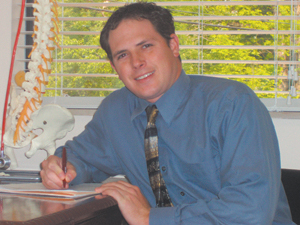A HEALTHY DAY
 Anxiety
Anxiety
Wide-Ranging Health Effects
Humans appear to be hard-wired for modest levels of anxiety as a fear-arousal warning mechanism. Anxiety may be characterized as uneasiness, fear, worry, and apprehension. Anxiety is a common psychological state in which the basic message is “get away from this situation”. The state is usually accompanied by numerous physiologic components including surges of the hormone adrenaline, increased heart rate and elevated blood pressure, and increased blood flow to the major muscle groups as the body prepares for “fight or flight”.
These are all normal responses to environmental threats. The overall process is orchestrated by the amygdala and hippocampus-two regions of the brain’s limbic system that process memory, emotional response, and spatial navigation. But for many people, if anxiety states become frequent and prolonged by various developmental circumstances in childhood and their teenage years, they may begin to respond to perceived rather than real threats. The anxiety state may persist and even become the default condition for the individual.
Those with chronic anxiety may experience chronic back pain,1,2 chronic muscular tension, fibromyalgia,3 headaches, chest pain, shortness of breath, and heart palpitations. Chronic anxiety may cause a person to anticipate the worst, to have ongoing feelings of dread, to be constantly irritable and tense, and to experience panic attacks. Eventually the person may become worn out from the constant drain on their inner resources and a likely outcome is depression. The person simply cannot take any more stress.
Chronic anxiety has a specific impact on the musculoskeletal system. Persistently elevated levels of adrenaline create ongoing tension in the postural muscles of the lower back and the weight-bearing, antigravity gluteal muscles, pelvic musculature, and hamstrings. The long-term results may include chronic lower back pain, inflammation of the sciatic nerve, and lumbar disc disease. Of course, any of these health problems create more anxiety for the person, establishing a vicious circle of anxiety, pain, more anxiety, and more pain.
Solutions for chronic anxiety usually require multidisciplinary holsitic approaches. Nutrition, for example, is a key factor in restoring a person’s homeostatic mechanisms. Significantly reducing one’s intake of simple carbohydrates – soda, muffins, cookies, cake, fast food, and even juice – will often have a substantial impact. Making sure to have five servings of fresh fruits and vegetables every day will also provide great benefit.
Chiropractic care can frequently provide considerable assistance to those with chronic anxiety. By normalizing activity within the musculoskeletal system and reducing muscular stress and tension, chiropractic care helps eliminate an unnecessary source of biochemical and physiologic stress.
1Newcomer KL, et al: Anxiety levels, fear-avoidance beliefs, and disability levels at baseline and at 1 year among subjects with acute and chronic low back pain. Phys Med Rehabil 2(6):514-520, 2010
2Hurley DA, et al: Physiotherapy for sleep disturbance in chronic low back pain: a feasibility randomised controlled trial. BMC Musculoskeletal Disord 11:70, 2010 [11 pages]
3Silverman S, et al: Toward characterization and definition of fibromyalgia severity. BMC Musculoskeletal Disord 11:66, 2010 [9 pages]
This article is sponsored by Dr. Nill of Nill Family Chiropractic & Wellness Center, LLC. Please call us at (260) 459-2205 for your FREE consultation today!
Also, check out our website at www.nillchiropractic.com where you can take a look at the “Pain Centers” videos which shows how I treat each pain area. Feel free to follow us on facebook for updated specials and information. If you have any questions please contact Dr. Nill at drnill@nillchiropractic.com or call anytime.
Take care and Have A Healthy Day!
- THE IMPORTANCE OF BRINGING BALANCE TO YOUR SYSTEMS - December 8, 2017
- TURN, TURN, TURN – A Healthy Day - November 10, 2017
- TO LIFT OR NOT TO LIFT? – A Healthy Day - October 13, 2017


